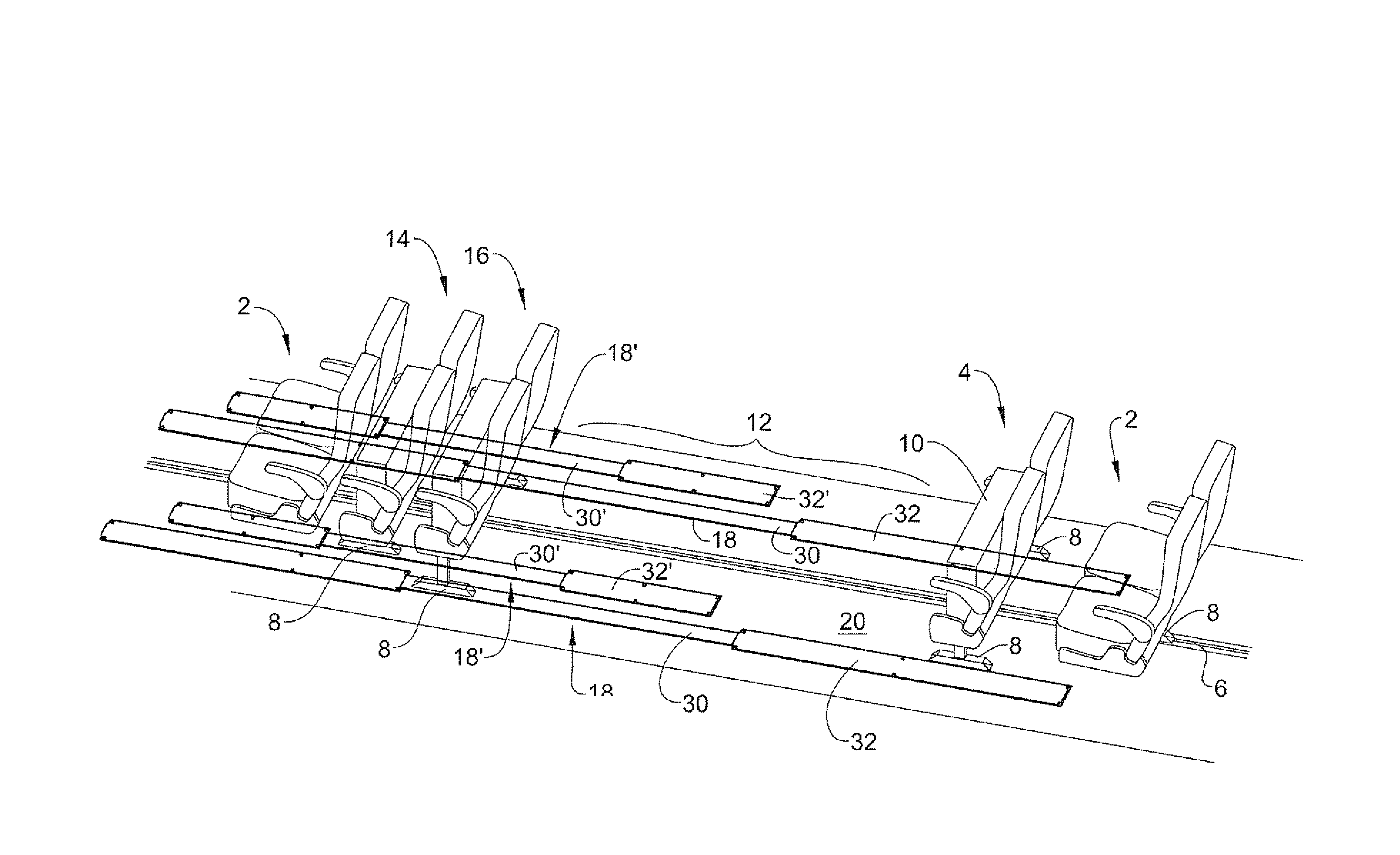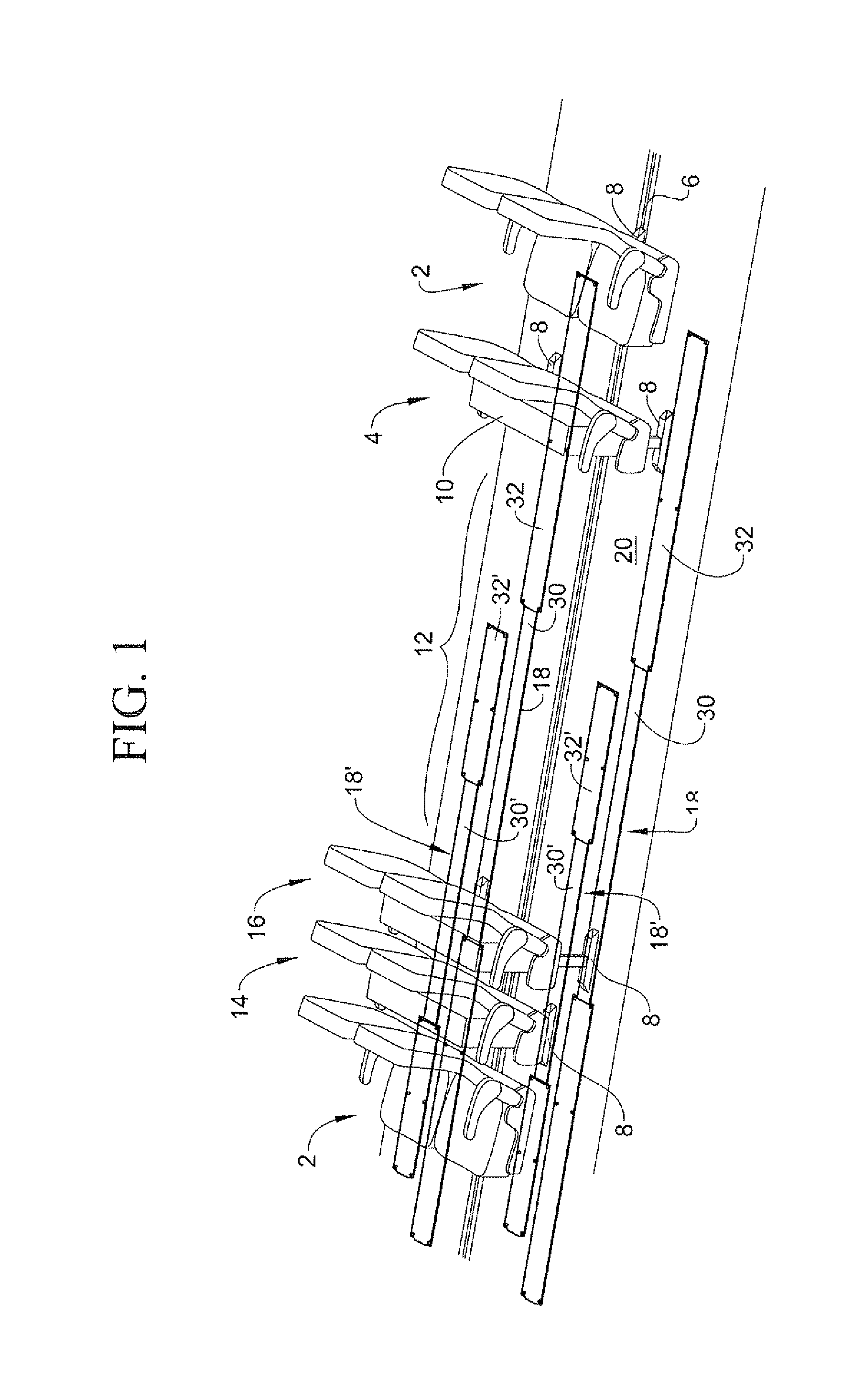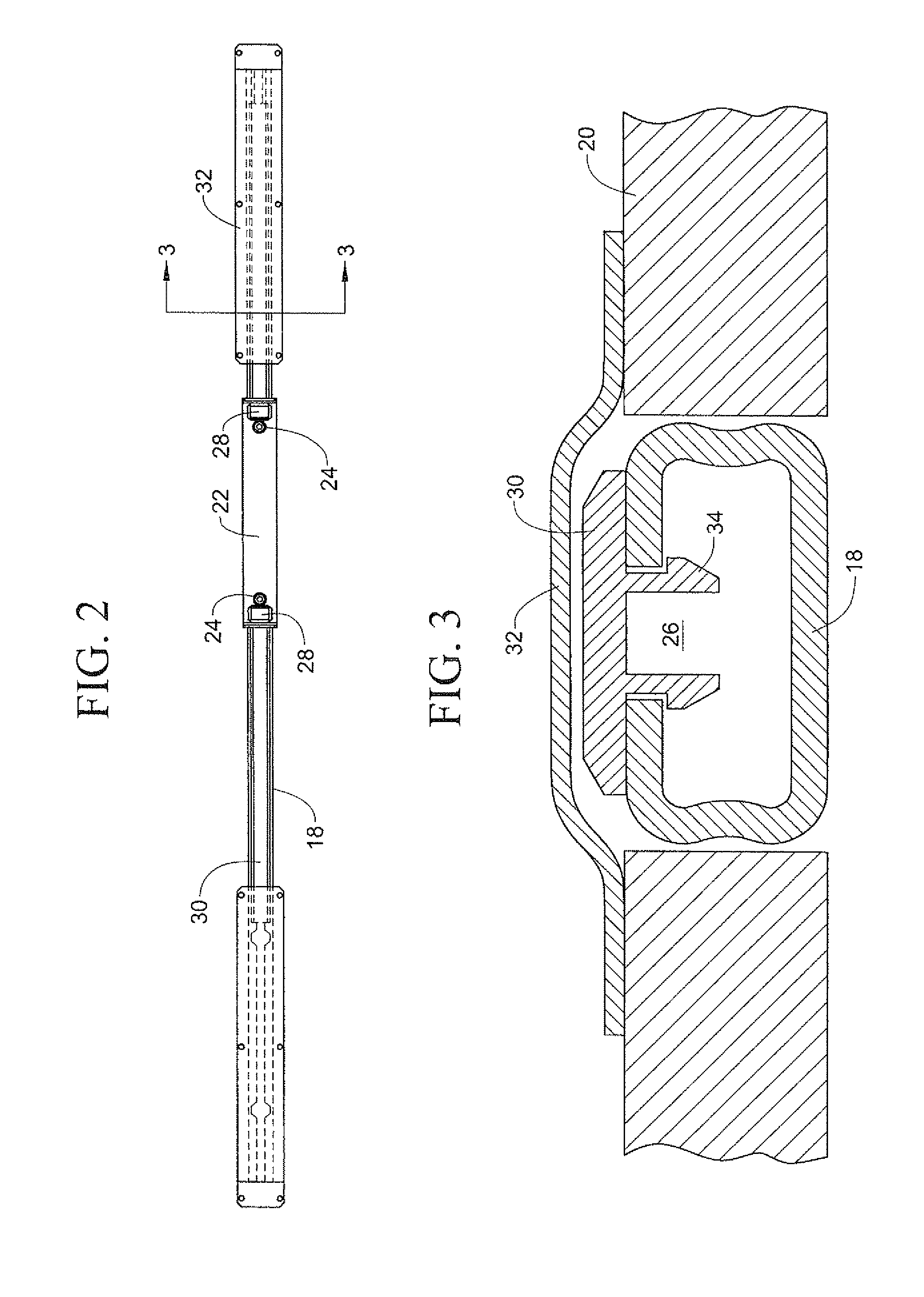Low maintenance configuration for sliding seats
a sliding seat and low maintenance technology, applied in the field of vehicles, can solve the problems of inability to protect, insatiable seating system of movable seat with movable track cover, etc., and achieve the effects of reducing maintenance, reducing maintenance, and increasing distan
- Summary
- Abstract
- Description
- Claims
- Application Information
AI Technical Summary
Benefits of technology
Problems solved by technology
Method used
Image
Examples
Embodiment Construction
[0019]With reference to FIG. 1, a seating configuration according to the invention is illustrated. Such a configuration may be used in transit vehicles, such as motor coaches, buses, railway cars, and the like. A primary purpose of such a configuration is the use of sliding seats that move to provide an area for receiving a passenger in a mobility aid, such as a wheelchair. Thus, the seating area shown in FIG. 1 includes fixed seats 2 and 4. Seats 2 and 4 are known in the art and may be secured to the vehicle in known manner by attachment to the side of the vehicle and to a rail 6 on the floor of the vehicle. For example, each of the seats 2 may include a pedestal 8 that engages the rail 6 on the floor and is also secured to the side of the vehicle (not shown). Seat 4 is secured to the floor by two pedestals 8 and is preferably of the type that includes a folding seat portion 10, known in the art, which folds up to increase the size of the wheelchair area 12.
[0020]The seating config...
PUM
 Login to View More
Login to View More Abstract
Description
Claims
Application Information
 Login to View More
Login to View More - R&D
- Intellectual Property
- Life Sciences
- Materials
- Tech Scout
- Unparalleled Data Quality
- Higher Quality Content
- 60% Fewer Hallucinations
Browse by: Latest US Patents, China's latest patents, Technical Efficacy Thesaurus, Application Domain, Technology Topic, Popular Technical Reports.
© 2025 PatSnap. All rights reserved.Legal|Privacy policy|Modern Slavery Act Transparency Statement|Sitemap|About US| Contact US: help@patsnap.com



